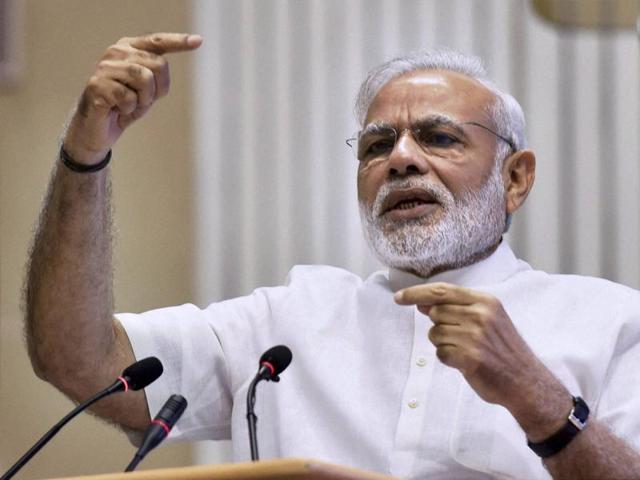Reclaiming leverage in Indus basin cheaper than war with Pakistan
Pakistan cannot expect the Indus Waters Treaty to survive eternally if it refuses to honour the terms of the 1972 peace pact signed at Simla
Be careful what you wish for: Not content with Pakistan enjoying a water-sharing arrangement with India that is by far the world’s most generous, the country’s Senate passed a unanimous resolution in March that declared: “This House recommends that the Government should revisit Indus Waters Treaty (IWT), 1960, in order to make new provisions in the treaty so that Pakistan may get more water for its rivers”. Little did the parliamentarians know that India would heed that call by revisiting the pact, which lopsidedly reserves for the lower riparian 80.52% of the total waters of the six-river Indus system, or 167.2 billion cubic metres of the aggregate 207.6 billion cubic metres average yearly flows. Thinking it was trading water for peace through the IWT, a naïve India even contributed $173.63 million for dam and other water projects in Pakistan.

Read: Blood and water can’t flow together, says Modi at meeting on Indus treaty
Prime Minister Narendra Modi’s decision to review IWT arrangements, including India’s rights and obligations, extends to suspending the Permanent Indus Commission. The commission has done little more than run regular consultative meetings between its two commissioners, each of whom acts on behalf of his country. In the aftermath of the December 2001 Parliament attack by five Pakistani gunmen, India suspended any commission meeting. But this marks the first occasion that India has set in motion a reappraisal of the IWT, forming an inter-ministerial panel.
If an inherently unequal water treaty is to endure, the direction of the Pakistan-India relationship needs to change towards respecting all bilateral commitments. Pakistan cannot expect the IWT to survive eternally if it refuses to honour the terms of the central treaty governing bilateral relations — the 1972 peace pact signed at Simla. It also flouts its subsequent commitments not to allow its territory to be used for cross-border terrorism. Rights and obligations under the older IWT cannot override the terms of the Simla treaty, which provides the essential basis for all peaceful cooperation, including mandating the Line of Control’s inviolability and dispute settlement by bilateral means.
Read: Petition in Supreme Court calls for scrapping of Indus Waters Treaty
Today, Pakistan, refusing to accept international norms of interstate behaviour, demands rights without responsibilities. It wages an undeclared war by terror to bleed the upper riparian while insisting that its target perpetually be munificent on water sharing. Just because a scofflaw State has enjoyed unparalleled water largesse for 56 years does not mean that such generosity by the upper riparian must last forever. Indeed, Pakistan challenges the very fundamentals of international law by seeking to repay its co-riparian’s water munificence with blood.
Like Lady Macbeth in William Shakespeare’s Macbeth, Pakistan’s terrorism-exporting generals must ask themselves whether all the waters flowing in the Indus system would “wash this blood clean” from their hands. Modi has rightly warned: “Blood and water cannot flow simultaneously”. In fact, Pakistan’s roguish conduct has armed India with the lawful option to invoke Article 62 of the Vienna Convention on the Law of Treaties to dissolve the IWT. In the interim, it could suspend the treaty’s implementation.
Read: Mutual trust must for treaties like on Indus water to work, says India
The purpose of any potential IWT-related action by India would not be to cut off water flows to Pakistan. Rivers flow from mountains to oceans or large lakes, and no nation can completely undo the laws of nature. Rather, the action would be aimed at India regaining sovereignty over the Jammu and Kashmir rivers, which the IWT has reserved for Pakistan’s use by limiting India’s full sovereignty to the three smaller rivers flowing south of J&K. No other modern treaty has partitioned rivers in such a blatant, neo-colonial manner.
By reclaiming its basic right over the J&K rivers, India could fashion water as an instrument of leverage to bring Pakistan to heel. Even a 10% diminution in transboundary water flows would hurt Pakistan, whose debt-ridden economy is reliant on earnings from agricultural exports, especially water-intensive rice and cotton. Pakistan’s per capita water use is almost 80% higher than India’s.
To deter India from employing its water leverage, the bugbear of Chinese retaliation has been invented. The plain fact is that China has little clout in the Indus basin: Four of the six rivers (including the two with the largest transboundary flows into Pakistan, the Chenab and the Jhelum) originate in India — three of them in Himachal Pradesh alone. The other two, the main Indus stream and the Sutlej, begin as small rivers in Tibet and collect their main water in India.
Read: Pak can go to International Court of Justice if India violates Indus pact: Aziz
China, which rejects water sharing even as a concept, is already doing whatever it wishes in other transnational basins. From the Brahmaputra and the Arun (Kosi) to the Mekong and the Salween, China is reengineering transboundary flows by building cascades of dams, with little regard for downstream impacts in Asia.
For India, reclaiming its leverage in the Indus basin is a cheaper option to reform Pakistan’s behaviour than fighting a war. Indeed, India’s best bet to end cross-border terrorism is employing ‘peaceful’ options — from diplomatically isolating Pakistan and mounting riparian pressures to waging economic, cyber and asymmetric warfare. Modi’s IWT re-examination is a step in the right direction.
Brahma Chellaney is the author of Water, Peace, and War and Water: Asia’s New Battleground



